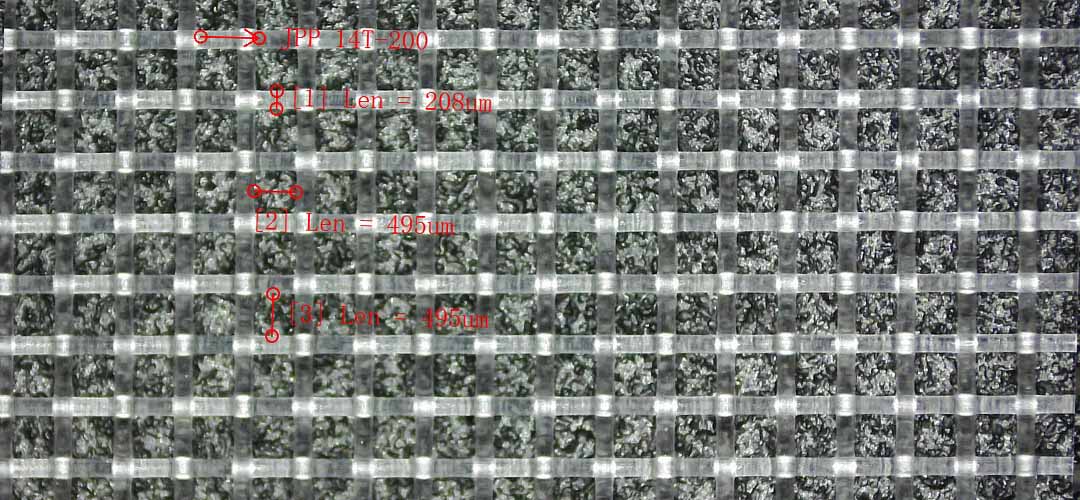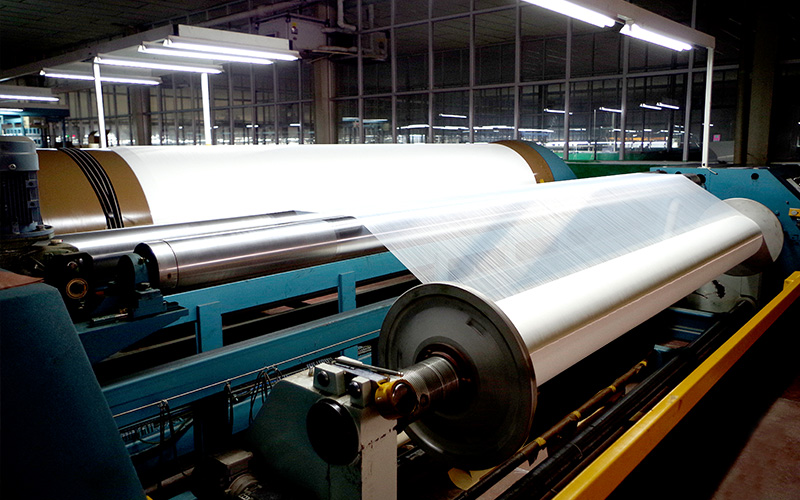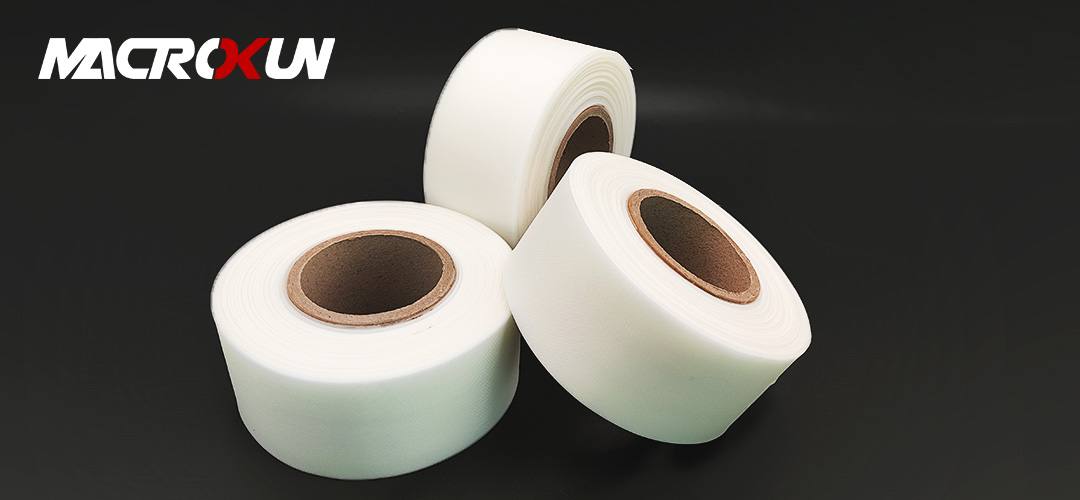Nylon mesh is a popular material used in the manufacturing of sieves due to its many beneficial features that improve filtration performance. One of the top features of nylon mesh is its increased durability, which is essential for ensuring the longevity and effectiveness of the sieve.
Nylon mesh is known for its high tensile strength, which allows it to withstand the rigors of filtration processes without tearing or breaking. This durability is crucial for maintaining the integrity of the sieve and preventing any particles from passing through the mesh. Additionally, nylon mesh is resistant to abrasion, chemicals, and high temperatures, making it suitable for a wide range of filtration applications.

The durability of nylon mesh also contributes to its long lifespan, reducing the need for frequent replacements and saving on costs in the long run. This makes nylon mesh a cost-effective option for businesses looking to improve their filtration processes without compromising on quality.
In addition to its durability, nylon mesh is also lightweight and flexible, making it easy to handle and install in sieves of various sizes and shapes. This flexibility allows for customization and adaptation to specific filtration requirements, ensuring optimal performance in different applications.
Furthermore, nylon mesh is easy to clean and maintain, requiring minimal effort to remove any trapped particles and debris. This helps to prevent clogging and maintain the efficiency of the sieve over time. Regular cleaning and maintenance of nylon mesh sieves can help prolong their lifespan and ensure consistent filtration performance.

Another key feature of nylon mesh for sieves is its uniform porosity, which allows for precise filtration of particles of different sizes. The consistent pore size distribution of nylon mesh ensures that only particles of a certain size can pass through, while larger particles are retained on the surface. This uniformity in filtration helps to achieve a high level of separation efficiency and improve the overall quality of the filtrate.
Moreover, nylon mesh is available in a wide range of mesh sizes, allowing for fine-tuning of the filtration process to meet specific requirements. Whether filtering large particles or fine particles, nylon mesh can be customized to achieve the desired level of filtration efficiency.
| Model | Mesh Count (/cm) |
Mesh Count (/inch) |
Thread Dia (um) |
Mesh Opening (um) |
Thickness (um) |
Weight (g/m2) |
| NL4/1950 | 4 | 10 | 550 | 1950 | 1100 | 307 |
| NL5/1500 | 5 | 13 | 500 | 1500 | 1000 | 318 |
| NL6/1267 | 6 | 15 | 400 | 1267 | 800 | 244 |
| NL7/1079 | 7 | 18 | 350 | 1079 | 700 | 218 |
| NL8/900 | 8 | 20 | 350 | 900 | 700 | 249 |
| NL9/861 | 9 | 23 | 250 | 861 | 500 | 143 |
| NL9/811 | 9 | 23 | 300 | 811 | 600 | 206 |
| NL10/750 | 10 | 25 | 250 | 750 | 500 | 159 |
| NL10/700 | 10 | 25 | 300 | 700 | 600 | 229 |
| NL12/583 | 12 | 30 | 250 | 583 | 500 | 191 |
| NL12/533 | 12 | 30 | 300 | 533 | 600 | 274 |
| NL14/514 | 14 | 36 | 200 | 514 | 340 | 142 |
| NL16/425 | 16 | 40 | 200 | 425 | 340 | 160 |
| NL20/350 | 20 | 50 | 150 | 350 | 255 | 113 |
| NL20/300 | 20 | 50 | 200 | 300 | 340 | 200 |
| NL24/267 | 24 | 60 | 150 | 267 | 255 | 135 |
| NL28/237 | 28 | 70 | 120 | 237 | 204 | 101 |
| NL30/213 | 30 | 76 | 120 | 213 | 204 | 110 |
| NL32/213 | 32 | 80 | 100 | 213 | 170 | 80 |
| NL36/178 | 36 | 90 | 100 | 178 | 170 | 90 |
| NL40/150 | 40 | 100 | 100 | 150 | 170 | 100 |
| NL43/153 | 43 | 110 | 80 | 153 | 136 | 70 |
| NL48/128 | 48 | 120 | 80 | 128 | 136 | 77 |
| NL56/119 | 56 | 140 | 60 | 119 | 102 | 50 |
| NL64/96 | 64 | 160 | 60 | 96 | 102 | 58 |
| NL72/89 | 72 | 180 | 50 | 89 | 85 | 45 |
| NL80/75 | 80 | 200 | 50 | 75 | 85 | 50 |
| NL100/57 | 100 | 250 | 43 | 57 | 73 | 46 |
| NL110/48 | 110 | 280 | 43 | 48 | 73 | 52 |
| NL120/48 | 120 | 300 | 35 | 48 | 60 | 37 |
| NL120/40 | 120 | 300 | 43 | 40 | 73 | 55 |
| NL130/42 | 130 | 330 | 35 | 42 | 60 | 40 |
| NL130/34 | 130 | 330 | 43 | 34 | 73 | 61 |
| NL140/36 | 140 | 350 | 35 | 36 | 60 | 43 |
| NL157/25 | 157 | 400 | 43 | 25 | 73 | 74 |
| NL180/20 | 180 | 450 | 39 | 20 | 66 | 68 |
| NL200/15 | 200 | 500 | 39 | 15 | 66 | 76 |
| NL220/10 | 220 | 550 | 39 | 10 | 66 | 84 |
| NL240/5 | 240 | 600 | 39 | 5 | 66 | 91 |
Overall, the top features of nylon mesh for sieves, including increased durability, flexibility, uniform porosity, and customization options, make it an ideal choice for businesses looking to improve their filtration performance. By investing in high-quality nylon mesh sieves, businesses can enhance their filtration processes, increase productivity, and achieve better results in their operations.
Nylon mesh is a popular material used in the manufacturing of sieves for various filtration applications. Its unique properties make it an ideal choice for industries that require efficient and reliable filtration processes. In this article, we will explore the top features of nylon mesh for sieves that improve filtration performance.
One of the key features of nylon mesh is its durability. Nylon is a strong and resilient material that can withstand high temperatures and harsh chemicals without losing its structural integrity. This makes nylon mesh sieves ideal for filtering applications that involve aggressive substances or extreme conditions. The durability of nylon mesh ensures that the sieve will maintain its filtration efficiency over time, reducing the need for frequent replacements and saving costs for the user.
Another important feature of nylon mesh is its flexibility. Nylon is a flexible material that can be easily molded into different shapes and sizes to fit specific filtration requirements. This flexibility allows manufacturers to create sieves with precise mesh sizes and configurations, ensuring optimal filtration performance for each application. Nylon mesh sieves can be customized to meet the unique needs of different industries, making them a versatile and adaptable filtration solution.
In addition to durability and flexibility, nylon mesh also offers excellent chemical resistance. Nylon is resistant to a wide range of chemicals, including acids, bases, and solvents, making it suitable for filtering corrosive or reactive substances. This chemical resistance ensures that the nylon mesh sieve will not degrade or react with the filtered material, maintaining the purity and quality of the final product. Industries that deal with hazardous chemicals or sensitive materials can rely on nylon mesh sieves to provide safe and effective filtration.
Furthermore, nylon mesh is known for its high tensile strength. Tensile strength is the maximum amount of force that a material can withstand before breaking or deforming. Nylon mesh has a high tensile strength, making it capable of withstanding heavy loads and pressures during the filtration process. This strength ensures that the sieve will not collapse or deform under the weight of the filtered material, maintaining consistent filtration performance and preventing contamination or leakage.
Another feature of nylon mesh that improves filtration performance is its uniform porosity. Porosity refers to the size and distribution of the pores in the mesh, which determine the flow rate and efficiency of the filtration process. Nylon mesh is manufactured with precise pore sizes and uniform distribution, ensuring consistent and reliable filtration results. The uniform porosity of nylon mesh sieves allows for efficient separation of particles and impurities, resulting in a clean and pure filtrate.
In conclusion, nylon mesh offers a range of features that enhance filtration performance in sieves. Its durability, flexibility, chemical resistance, tensile strength, and uniform porosity make it an ideal material for industries that require efficient and reliable filtration processes. By choosing nylon mesh sieves, businesses can improve their filtration efficiency, reduce maintenance costs, and ensure the quality and purity of their products.
Nylon mesh is a popular material used in sieves for its durability and versatility. One of the key features that sets nylon mesh apart from other materials is its improved chemical resistance. This feature makes nylon mesh an ideal choice for filtration applications where exposure to harsh chemicals is a concern.
Chemical resistance is a critical factor to consider when selecting a sieve for filtration purposes. Nylon mesh is known for its ability to withstand a wide range of chemicals, including acids, bases, and solvents. This makes it a reliable option for industries such as pharmaceuticals, food and beverage, and chemical processing, where the filtration of corrosive substances is common.
The improved chemical resistance of nylon mesh is due to its unique molecular structure. Nylon is a synthetic polymer made from long chains of repeating units, which gives it a high degree of stability and resistance to chemical degradation. This allows nylon mesh to maintain its integrity and filtration performance even when exposed to aggressive chemicals over time.
In addition to its chemical resistance, nylon mesh also offers excellent mechanical strength and abrasion resistance. This makes it a durable and long-lasting material for sieves, ensuring reliable filtration performance in demanding industrial environments. Nylon mesh can withstand high temperatures and pressures without losing its shape or efficiency, making it a cost-effective choice for filtration applications.
Another advantage of nylon mesh is its flexibility and ease of customization. Nylon mesh can be manufactured in a wide range of mesh sizes and configurations to meet specific filtration requirements. Whether you need a fine mesh for particle retention or a coarse mesh for liquid filtration, nylon mesh can be tailored to suit your needs. This versatility makes nylon mesh a versatile option for a variety of filtration applications.
Furthermore, nylon mesh is easy to clean and maintain, making it a practical choice for industries that require frequent filter changes or sterilization. Nylon mesh can be easily washed with water or mild detergents to remove contaminants and restore its filtration efficiency. This ease of maintenance helps to prolong the lifespan of nylon mesh sieves and ensures consistent filtration performance over time.
Overall, the improved chemical resistance of nylon mesh makes it a top choice for sieves in filtration applications where exposure to harsh chemicals is a concern. Its durability, mechanical strength, and flexibility make it a reliable and cost-effective option for industries that require efficient and long-lasting filtration solutions. With its ease of customization and maintenance, nylon mesh offers a practical and versatile solution for a wide range of filtration needs.
Nylon mesh is a popular material used in the manufacturing of sieves due to its superior strength and tensile properties. These features play a crucial role in improving filtration performance and ensuring the efficiency of the sieving process.
One of the key advantages of nylon mesh is its exceptional strength, which allows it to withstand high pressure and heavy loads without tearing or breaking. This durability makes nylon mesh an ideal choice for applications that require frequent use or exposure to harsh conditions. Whether it’s in a laboratory setting or an industrial environment, nylon mesh can be relied upon to deliver consistent performance over time.

In addition to its strength, nylon mesh also boasts impressive tensile properties. This means that it can stretch and flex without losing its shape or integrity, making it highly resilient to wear and tear. As a result, nylon mesh sieves are less likely to develop holes or tears, which can compromise the accuracy of the filtration process.
Furthermore, the flexibility of nylon mesh allows for greater customization in sieve design. Manufacturers can easily adjust the mesh size and weave pattern to meet specific filtration requirements, ensuring optimal performance for a wide range of applications. This versatility makes nylon mesh a versatile and adaptable material that can be tailored to suit the needs of different industries and processes.
Another key feature of nylon mesh is its resistance to chemicals and corrosion. Unlike other materials, such as stainless steel or brass, nylon mesh is not susceptible to rust or corrosion when exposed to harsh chemicals or acidic substances. This makes it an ideal choice for applications that involve the filtration of corrosive liquids or materials, as nylon mesh will not degrade or deteriorate over time.
Additionally, nylon mesh is lightweight and easy to handle, making it convenient for use in various settings. Its low density and pliability make it easy to install and remove from sieves, simplifying maintenance and cleaning procedures. This user-friendly aspect of nylon mesh enhances the overall efficiency of the sieving process, saving time and effort for operators.
Overall, the top features of nylon mesh for sieves – including superior strength, tensile properties, chemical resistance, and ease of handling – all contribute to improved filtration performance. By choosing nylon mesh for their sieving needs, businesses can benefit from a durable, reliable, and versatile material that enhances the efficiency and accuracy of their filtration processes. Whether it’s in a laboratory, manufacturing facility, or research setting, nylon mesh is a trusted choice for achieving optimal results in sieving applications.
Pre: Nylon Mesh for Filter Screens: A Cost-Effective Solution for Industrial Use
Next: Top Industries Using Nylon Mesh for Filter Cloth in Their Operations

MACROKUN has established long-term and stable cooperative relations with many transportation companies such as China Post, DHL, FEDEX, USPS, UPS, etc. Of course, MACROKUN can also provide air and sea transportation. The powerful logistics system enables all MACROKUN'S Printing Mesh, Filter Mesh and Filter Bags and so on to be easily and efficiently transported to any place. For quotes and inquiries, please email our sales team.





